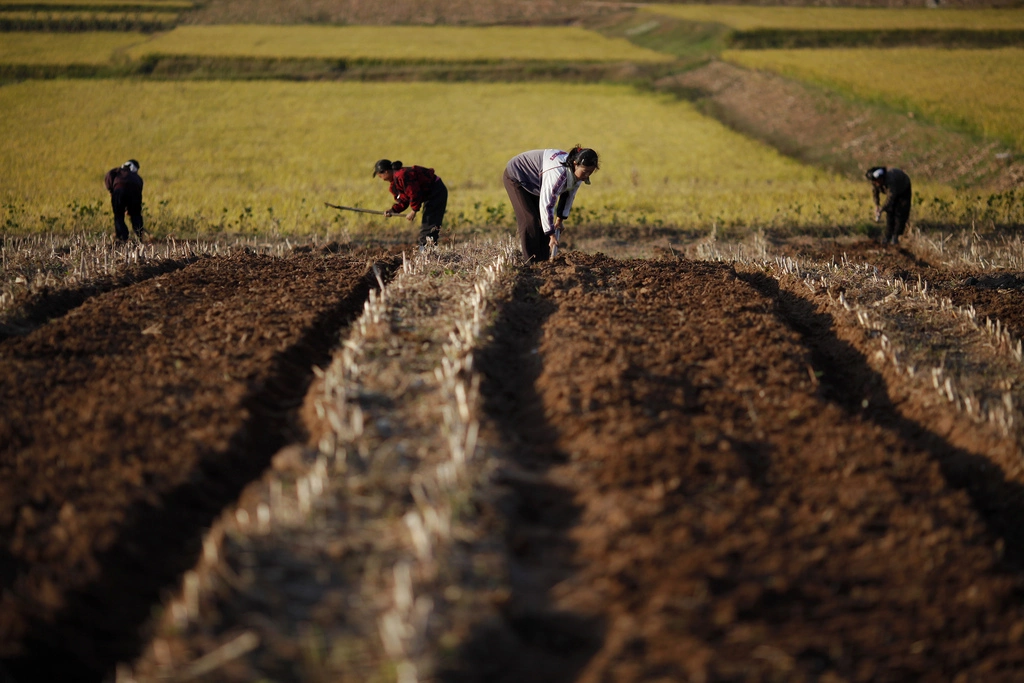North Korean leader Kim Jong Un demanded modifications to infrastructure and expansion of farmland to ramp up food production, state media said on Thursday, amid forewarnings of an upcoming food crisis. Kim issued instructions to rebuild irrigation systems, construct modern farming machines, and create more arable land as he covered up the seventh enlarged inclusive meeting of the ruling Workers’ Party’s powerful Central Committee on Wednesday. The discussion began on Sunday to discuss the critical task of enhancing the agricultural sector.
North Korea is also under strict international sanctions over its banned nuclear and ballistic missile programs. Last year, the country’s grain production was estimated at 4.5 million tonnes, a 3.8 percent drop from 2020, according to South Korean government assessments. North Korea was estimated to have produced between 4.4 million to 4.8 million tonnes of grain annually from 2012-2021, according to previous South Korean data.
The economy of North Korea has been damaged by floods and storms, boycotts over its nuclear and missile programs, and a sharp decline in trade with China amid border closures and COVID-19 lockdowns.
South Korea’s rural development agency estimated the North’s crop production dropped almost 4 percent last year from the year before, mentioning heavy summer rains and other economic conditions.
Kim laid out plans and specific tasks to build rich and highly-civilized socialist rural communities with advanced technology and modern civilization.
He ordered revamp of the irrigation system to cope with climate change, the production of efficient farming machines to modernize production, and the reclamation of tidelands to expand farming areas.”
KCNA news agency said.
A lack of fine agricultural infrastructure, machinery, and supplies including fertilizers and fuel has made North Korea weak to natural disasters, experts say.
Since the 1980s North Korea has also aimed to develop arable land through tideland reclamation along its west coast the 1980s, but earlier actions failed due partly to inadequate engineering and maintenance.
According to the US-based 38 North project statement in late 2021, Under Kim, reclamation projects have been fairly more prosperous, but with slow improvement in transforming coastal mudflats into fertile farmland, they did little to ease food shortages.
The state media report said they set new goals and action plans, but I don’t see anything new as all of the elements including irrigation and reclamation have already been raised before.”
Lim Eul-Chul-a professor at Kyungnam University in South Korea.
Yang Moo-jin, a professor at the University of North Korean studies in Seoul, also noted the report did not offer new ideas or a potential change in the grain policy which South Korea accused for food shortages.
Kim stressed the need to tighten discipline in implementing the economic plan, warning against “practices of weakening the organizational and executive power of the cabinet,” and ordered all party units to get their working efficiency verified.”
KCNA agency said.
Without elaborating KCNA reported, The Central Committee also discussed ways to improve the country’s financial management.




